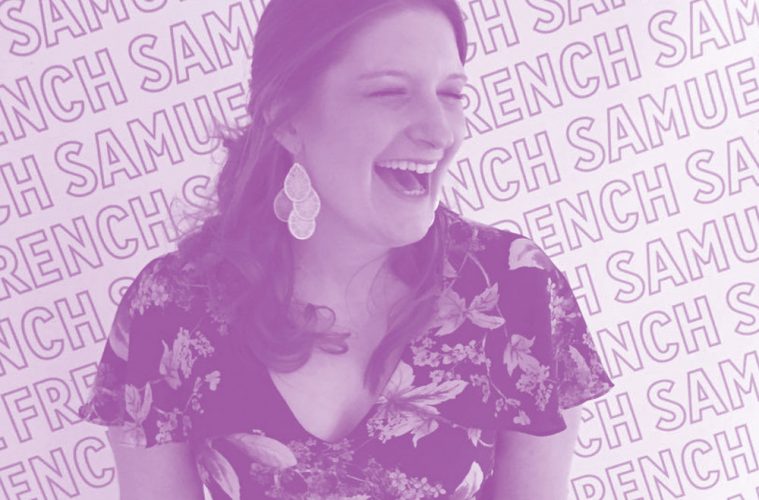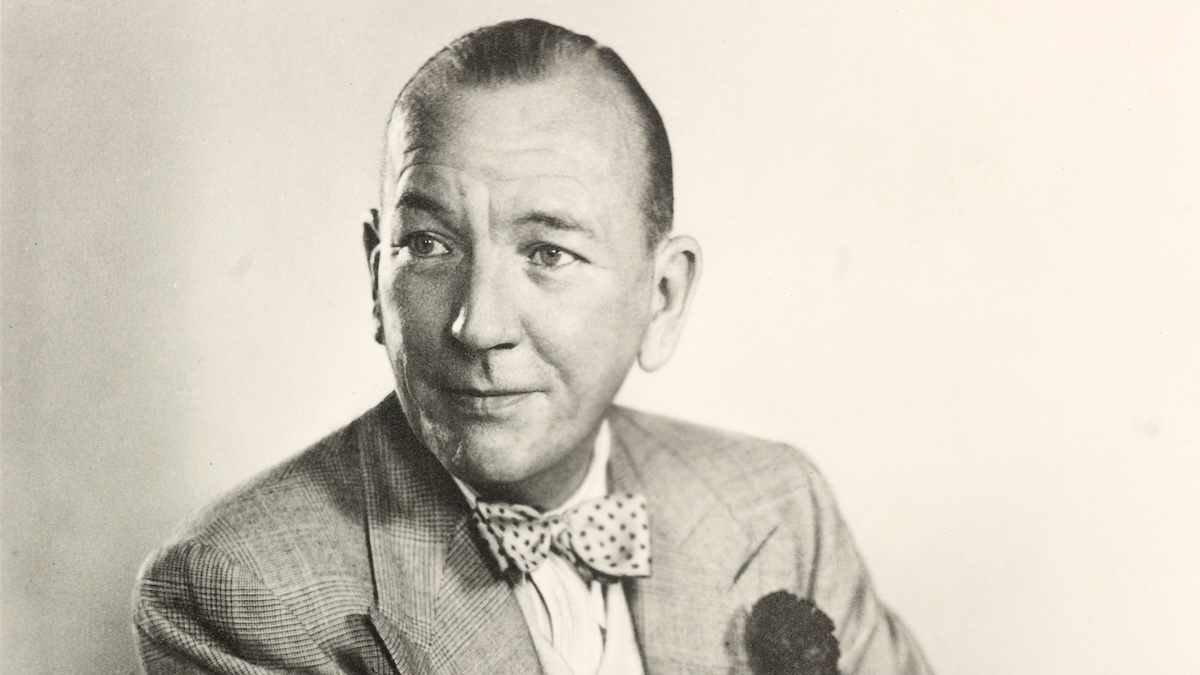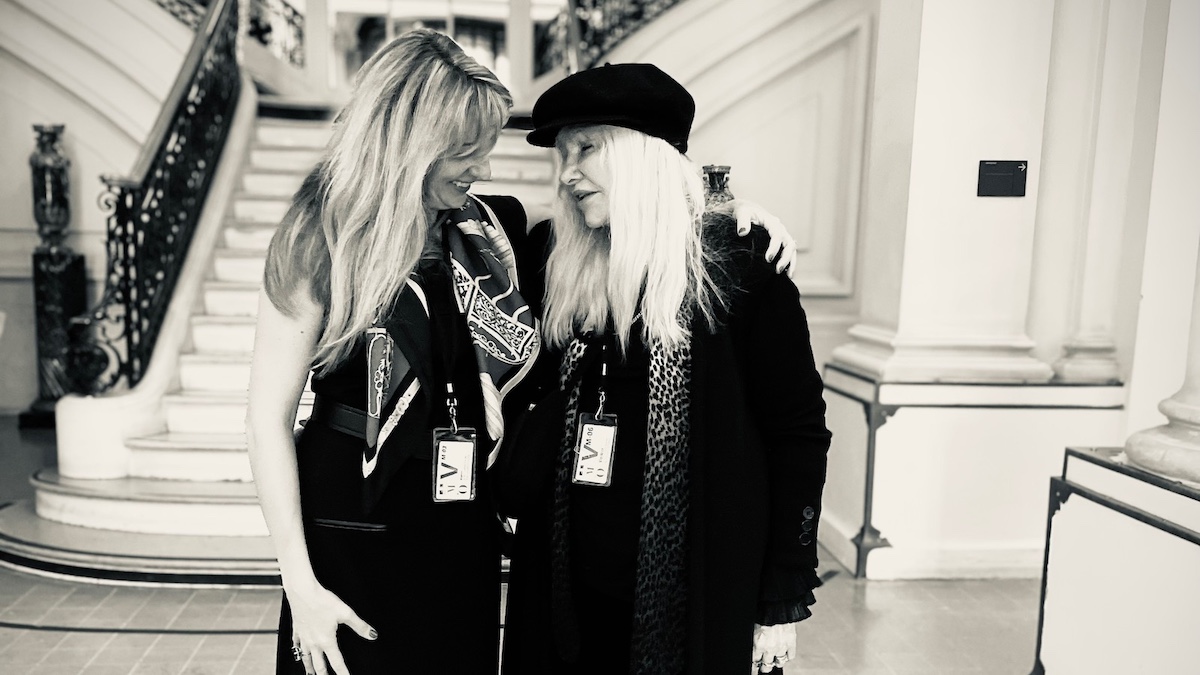
Social media is a key part to any company’s marketing strategy and Samuel French is no exception. Chris Kam, our Marketing Manager of Media & Promotions, sat down with fellow teammate Courtney Kochuba, Marketing Manager of Social Media & Community, to chat all things social, nationwide collaboration with theaters, and how we want to work with you in the future.
Chris Kam: So let me start by saying that I definitely have an advantage to interviewing you, since we work so closely together on the marketing team.
Courtney Kochuba: Absolutely! I think you may already know a lot of my strategies and secrets. Actually, can I kick us off by saying that working well with teammates is key to a social media strategy? It’s all about fitting into a larger marketing plan, as well as collaboration with smart, creative colleagues.
Chris: Obviously, since you’re talking about me, I’ll take that compliment. But, for our readers, could you give a brief introduction into what we focus on in the marketing department?
Courtney: Our marketing team feels that we have three major directives. First, to promote our titles and authors. Second, we market Samuel French as a company and brand. Beyond licensing titles and selling scripts, there’s so much that we do with arts advocacy, education, and programs like the OOB Festival and Playwrights Welcome. Our job is to get the word out. Finally, the third component is to celebrate everybody who makes theatre happen.
Chris: “Make theatre happen” is Samuel French’s unofficial motto. So, this third area covers things happening outside of our company, right? Sharing and talking about what’s happening in the industry at large, in the full community.
Courtney: Exactly, and all of that fits in perfectly with social media.
Chris: Referring to social media, what specific platforms are you talking about?
Courtney: Our main platforms are Twitter, Instagram and Facebook. We also use Snapchat and Pinterest. Truthfully, Snapchat is mainly for the teenagers at our conferences, but you can get fun insights into Samuel French there, too. It’s definitely our most relaxed channel, which makes it really fun.
Chris: And we have a lot of marketing channels that we use to promote our titles and Samuel French activity. How do these social media-specific platforms fit into that? Let me rephrase that, is there something different or unique that these platforms allow us to do?
Courtney: Definitely. The main difference is the immediacy of it. There’s nothing better than when you tweet something and within five minutes you’re having a conversation with a customer halfway across the country. That’s another unique aspect, too. The dialogue that is spurred on by social media engagement.
The thing is, social media won’t work if you treat it as a shout box. Posting multiple things every day all day will ultimately backfire, because nobody has the time to sift through and read everything. Content needs to created, vetted and shared with a thoughtfulness behind it. The point of social media, for us at least, is to create a dialogue. Much of our strategy focuses on how to engage directly with our customers, theaters, authors, and artists.
Chris: So when you’re thinking of social strategy and this direct outreach, how are you determining what social media platform to share something on?
Courtney: Well, let me say this: every day, it seems that people are reinventing the uses for each social media outlet. For us, Instagram is about insight. Providing a look — quite literally — into a company, a project, a lifestyle. Twitter is about conversation, and Facebook is about engagement. You can have people sharing and commenting, not to mention responding with an array of ever-evolving emojis.
Chris: You’re probably considering the audience you’ll reach as well? The demographics?
Courtney: Exactly. Instagram is slightly skewed towards high school and college age, though we have a growing number of community and professional theaters joining in. Twitter is definitely more twenty-something followers. Part of our strategy is figuring out what triggers engagement with these audiences.
Chris: Okay, then talking about strategy and promotional activity, what are some of the ways that you’ve used social media to promote a specific title that we license?
Courtney: It really varies, as you know, depending on what we feel the needs of a specific title are. Also, what we have to share or what assets are available to us.
Chris: Can you give an example? Maybe with something that I know has had a lot of success, Heathers the Musical?
Courtney: Well, we’ve done quite a lot with that title. We were able to announce the original acquisition and then the creation of Heathers the Musical: High School Edition via social media, and both campaigns remain some of our most popular. This past summer, we had a Heathers Vocal Selections book giveaway contest. We asked people to comment with their favorite song to be entered to win. The comments turned into small essays about their love for the musical and it was just terrific.
This show also has a huge following on social media, largely due to the actual Heathers Twitter account. Kevin [Murphy] and Larry [O’Keefe] who created the show are really active on social media as well, so we’ve been able to do a lot with them.
Chris: So you collaborate with Samuel French authors?
Courtney: Yes as much as possible. One of my favorite anecdotes is about a Twitter chat we held a few years ago. Through the chat, we ended up introducing a theater in Louisiana to our playwright Stephen Dolginoff, the writer and composer of Flames and Monster Makers. Whoever was running the theater’s Twitter handle hit it off with Stephen, and the theater ended up producing Flames a few months later. You can’t have that connection anywhere else unless you’re physically in a room with someone. So, it’s really exciting to provide a platform for all of these conversations to happen.
Chris: With theaters being active on social, are there specific ways that you’ve found to engage with them?
Courtney: Every week, we see which theaters are opening Samuel French plays and musicals, and which are active on social media. Then we try to connect with as many of them as we can via social media posts, wishing them “break a leg” and so on. It’s a nice way to let them know we’re supporting them post license request. It also might give them a bit more attention beyond their own marketing activities.
Chri
s: Do you find that it’s reciprocal? Do theaters tag us?
Courtney: Yes! It’s great whenever a theater or school tags us in photos or status updates. There are a couple of companies — some professional, but mainly community theaters and definitely high schools — who consistently tag us in everything they share from their auditions to rehearsals to opening night. And it’s exciting for us, because we’re able to see a show unfold in Illinois or Texas or California, and really connect to it.
Chris: Have you ever joined forces with a theater, and collaborated on social posts?
Courtney: Absolutely, we love working with the theaters. A big campaign that we’ve started doing are social takeovers. We’ve done this with several of our professional theater partners like Playhouse on the Square in Memphis and Ray of Light Theatre in San Francisco. Also, with a few of our shows on Broadway. We let someone from the cast takeover our Instagram and Twitter accounts for the day. This gives our followers a behind-the-scenes look at performances, as well as allows us to put the spotlight on a specific theater.
Chris: How do you find these theaters to work with?
Courtney: Truthfully, a lot depends on what show they are producing. But sometimes, these collaborations come because we see a theater creating amazing work on social media and I think, “There, that’s a theater we should be connecting with.”
I would also definitely encourage theaters to reach out to us, so we can continue to highlight the work that they’re doing. Tag us in posts or even email me (ckochuba@samuelfrench.com) to see if we could work together on social media promotions.
Chris: Do you have any social media tips you’d be willing to share with producing organizations?
Courtney: First and foremost: Create a hashtag. I know that sounds a little trite, but we live in a world of hashtags! They’re an important way to find your production or theater online, as well as an easy method to organize and collect the content you’re putting out there.
Once you have the hashtag, don’t forget to tell everyone to use it. Again, this sounds simple, but it’s an easy step to forget. No one can use something if you don’t provide it. Give the hashtag to everyone in your cast and crew, print it on all marketing promotions, and so on. Another great aspect is that hashtags allow your production to live on post closing night and contribute to your theater’s profile on social media for years to come.
Chris: Any other advice?
Courtney: Know your audience. I think the best advice I once got from someone was, “If you haven’t started social media yet, pick the one outlet that you feel comfortable with and go deep into it.” Don’t feel that you have to be active on every channel. Go with the platform where you feel most comfortable and confident — and, ideally, one that most of your audience is already on, so you already have built-in followers.
Chris: That’s definitely worth mentioning. Finally, you’ve been doing social media at Samuel French for a few years. A lot of our activity has evolved and we have a really active following. What is it you love about doing this work?
Courtney: One of the greatest parts of my job is getting to see art through the literal lens of these theaters. There are so may terrific Instagram Stories, for example, that give these snapshots of the production process. If you catch the Stories before they disappear, you feel like you’ve captured a little bit of that theatre magic. And then, even when the Stories are gone, you’re still left holding the emotion from it. Actually, it’s pretty similar to that moment when the curtain closes on a production. The live aspect is over, but the experience stays with you.
Chris: Any final words before we wrap up?
Courtney: Thank you, to all of these companies who are making theatre happen every day. We need art now more than ever, and at Samuel French, we feel honored to be supporting and sharing your work. So keep making theatre happen, keep telling your stories — and we’ll keep telling the world about it.

Noël Coward’s Travels

Kate Chopin in New Orleans: Mother-Daughter Author Duo Collaborate on Historical Book

